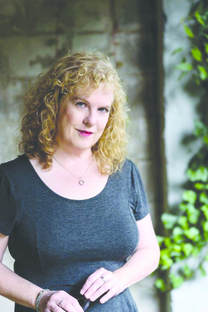,
Preach, Kendrick, Preach!
Popular Music as Sacred Text and the
Music Writer as Exploratory Theologian
see also:
DAMN
(the injustice, the hypocrisy, the brutality)
"I'm the closest thing to a preacher they have.
My word will never be as strong as God's word.
All I am is just a vessel doing his work." (Kendrick Lamar)
The elemental titles on DAMN. – "BLOOD.," "DNA.," "LOVE." – tell us that, despite the album's lush feeling of experimentation, this is a kind of stripping away: of the present moment and of the pressure to stand for anything but oneself. Kendrick stands alone in all his complexity here. "Opposition is not enough," bell hooks writes of the need for radical black subjectivity. "In that vacant space after one has resisted there is still the necessity to become – to make oneself anew." DAMN. is Kendrick Lamar showing us how to do that. —Ann Powers, NPR Music |
Preach Kendrick, preach! Some of the song titles alone — "ELEMENT.," "LUST.," "LOVE.," "GOD." - evoke a honest spirituality that add a weighty layer to the musical experience. Religious themes weave through all 14 songs including a reference to the bible's Deuteronomy in "YAH." and "FEAR." What makes this work so great is not just the meaningful lyricism we've come to expect from Kendrick, but also the clean and simplistic arrangements make this album supreme — no heavy layered sound, just commanding vocals, intentional bass lines (shout out to Thundercat on "FEEL.") and sparse keyboard effects that perfectly complement the melodic narrative. Power beats anchor every single song. "LOYALTY." will actually bust your speakers if you play it too loud. Musicality aside, the verses suggest a nostalgic take on the past. A reminder of the constant struggle and conflict in every stage of life. That life is a journey filled with both reflection and hope, and that God is leading the way. In "FEEL.," Kendrick raps, "Ain't nobody prayin' for me." Oh, but Kendrick, we are. We appreciate you, and the musical blessings you continue to bestow on us. —Suraya Mohamed, NPR Music |
Let Love Rule
the theology of Ledisi
|
Set List for Tiny Desk Concert
"Let Love Rule" "I Blame You" "Add To Me" High" |
Singer and songwriter Ledisi is a veteran R&B queen, which she immediately affirmed at the Tiny Desk with her powerful opening tune "Let Love Rule." It's the title song of her latest album, and a dazzling display of vocal range and technique. And yet, it hardly showcases the full scope of her artistic expertise. Classically trained, Ledisi is also celebrated as a jazz artist, which she clearly demonstrated when she broke out into a effortless scat outro on her second song, "I Blame You." |
Exploratory Theology
The Music Writing of Ann Powers
|
|
|
|
This is the heart of soul music: transcendence intertwined with an unflagging sense of being in the thick of life, the sound of ordinary people heroically getting by. To live is to face the fight. To not want to fight is to live. Fly on. |
Every child who's crushed grass beneath sneakers knows what it's like to wish the race could take her into open space. "Sprinter" creates that free zone, circles back on it, and ends up on a finish line of its own creation. |
Sunshine On My Back" is a reminder that each of us carries some sorrow that light only pushes into hiding; living with it is the human goal, not trying to banish it with giddiness...My tween self may not have understood its subtleties, but my adult self is thankful for its grey comfort. |
Can Writing about Popular Music
help Revitalize Theology?
understood as explorations arising
out of the fluid space in the heart
 Ann Powers of NPR
Ann Powers of NPR
Theology may be dead in the university (temporarily or permanently) but it is alive in popular culture, especially in popular music. Popular music is a primary source for meaning-making for many people in East Asia, South Asia, Africa, Europe, South America, and North America. It is as influential as organized religion and in some settings it functions as a primary alternative to organized religion, helping people enjoy touches of transcendence, create identities, and make meaning of their lives. They may not find meaning through the "big religions" of Judaism, Christianity, Islam, Hinduism, and Buddhism; but they do find meaning in songs sung by Adele, Elvis, and (in East Asia) Jay Chou. The songs themselves are their sacred texts, and they listen to them as often as people read Torah, the Qur'an, or the New Testament: seeking solace and facing challenges.
This does not mean that the popular music is good or beneficial to life. It can lead people to hatred not love, war not peace, obsession not freedom. It does mean that it is powerful. Academic theologians who neglect popular music are missing out on the very place where meaning-making now occurs for many people. Meaning-making is not occurring in books but rather in music and movies. And as this happens a new kind of theology is emerging. I will call it exploratory theology.
Most of us who love music are exploratory theologians. We listen to music for fun but also for meaning-making and guidance; we want music to help us live our lives. We turn to other sources, too: friends and family, books and movies, work and play. Some of us may also go to church, or belong to synagogues, or frequent mosques. But for music lovers popular music is a primary source for our meaning-making and identity-formation. The music may be produced in formulaic ways by corporations for purposes of making money or it may be created by gifted singer-songwriters who are independent of corporations. It may be rock or jazz, hip-hop or blues, country or folk. Our exploratory theology emerges in what we do with the music we receive. There is agency in the music and those who produce it, but there is also agency in the listener.
Exploratory theology is itself a form of agency. It is the activity of seeking wisdom for how to feel and live in the world as animated by touches of transcendence that come through songs. The touches of transcendence occur when, in listening to music, we are taken into an emotional space that is different from the mundane world, albeit with a logic of its own. For the moment, in the listening itself, we enter into a kind of virtual reality of sonic proportions; it is the place where the music takes us.
And then, consciously or unconsciously, we begin to theologize. Our theologizing is not formal or argumentative. We are not developing a position that must be defended against attacks by others. We are simply seeking wisdom, and our seeking can carry with it pre-existing beliefs about the life and the universe and God. Theists can undertake exploratory theology but so can atheists and agnostics -- all will experience a touch of transcendence in music itself. The meanings unfold as a subjective conversation between the listener and the song; and they change with time. "Good Day Sunshine" may mean one thing at a certain point in time and another at a later point. These meanings emerge in a conversation with the lyrics of the songs; but also, and sometimes more importantly, with the feelings that are evoked melodies, rhythms, and harmonies.
One of the callings of a music critic can to be to help us in our process of exploratory theology. If the critic is an explorer herself; if she is also in the process of trying to make sense of her own life and place in the world; and if she is a gifted writer; then she can review songs and, in writing about them, offer ideas that help us in our own process of meaning-making. In effect, she takes on the role of a public exploratory theologian. To be sure, she may not have this aim at all times in her writing. She may just want to make a living and share some "cool" music. But at times she will assume the role of wisdom-sharer, as best she can, and we will benefit from it. An example of this is Ann Powers, a music columnist for NPR. Often in her reviews she shares insights that emerge from her own listening to songs, and we find ourselves in considering what she says. Below you will find a sample of columns that are, to my mind, public exploratory theology at its best.
-- Jay McDaniel
This does not mean that the popular music is good or beneficial to life. It can lead people to hatred not love, war not peace, obsession not freedom. It does mean that it is powerful. Academic theologians who neglect popular music are missing out on the very place where meaning-making now occurs for many people. Meaning-making is not occurring in books but rather in music and movies. And as this happens a new kind of theology is emerging. I will call it exploratory theology.
Most of us who love music are exploratory theologians. We listen to music for fun but also for meaning-making and guidance; we want music to help us live our lives. We turn to other sources, too: friends and family, books and movies, work and play. Some of us may also go to church, or belong to synagogues, or frequent mosques. But for music lovers popular music is a primary source for our meaning-making and identity-formation. The music may be produced in formulaic ways by corporations for purposes of making money or it may be created by gifted singer-songwriters who are independent of corporations. It may be rock or jazz, hip-hop or blues, country or folk. Our exploratory theology emerges in what we do with the music we receive. There is agency in the music and those who produce it, but there is also agency in the listener.
Exploratory theology is itself a form of agency. It is the activity of seeking wisdom for how to feel and live in the world as animated by touches of transcendence that come through songs. The touches of transcendence occur when, in listening to music, we are taken into an emotional space that is different from the mundane world, albeit with a logic of its own. For the moment, in the listening itself, we enter into a kind of virtual reality of sonic proportions; it is the place where the music takes us.
And then, consciously or unconsciously, we begin to theologize. Our theologizing is not formal or argumentative. We are not developing a position that must be defended against attacks by others. We are simply seeking wisdom, and our seeking can carry with it pre-existing beliefs about the life and the universe and God. Theists can undertake exploratory theology but so can atheists and agnostics -- all will experience a touch of transcendence in music itself. The meanings unfold as a subjective conversation between the listener and the song; and they change with time. "Good Day Sunshine" may mean one thing at a certain point in time and another at a later point. These meanings emerge in a conversation with the lyrics of the songs; but also, and sometimes more importantly, with the feelings that are evoked melodies, rhythms, and harmonies.
One of the callings of a music critic can to be to help us in our process of exploratory theology. If the critic is an explorer herself; if she is also in the process of trying to make sense of her own life and place in the world; and if she is a gifted writer; then she can review songs and, in writing about them, offer ideas that help us in our own process of meaning-making. In effect, she takes on the role of a public exploratory theologian. To be sure, she may not have this aim at all times in her writing. She may just want to make a living and share some "cool" music. But at times she will assume the role of wisdom-sharer, as best she can, and we will benefit from it. An example of this is Ann Powers, a music columnist for NPR. Often in her reviews she shares insights that emerge from her own listening to songs, and we find ourselves in considering what she says. Below you will find a sample of columns that are, to my mind, public exploratory theology at its best.
-- Jay McDaniel
A Sample of Reviews by Ann Powers
reposted from her NPR Music Blog
Beyond Giddiness, Leaving Room for HeartbreakWhen I was a kid, I loved Paul McCartney to distraction. He was my first crush, my doe-eyed androgynous masculine ideal — goofy in Beatles movies, unabashedly feelingful in their songs, sexy in that innocent, what-is-sex-anyhow fashion that a twelve-year-old craves. But I hated the song "Good Day Sunshine." I was a miserable pubescent nerd with older parents who embarrassed me, few friends and zero boy connections. "Good Day Sunshine" had everything I didn't have — spring, warmth, an overwhelming mood of self-satisfaction. And it belonged to Paul. It revealed Paul, in love with some undoubtedly beautiful Mod girl who wasn't me, as distant from my misery as were the kids who snickered when I passed them in the school hallway. That song, so insularly joyful, stole music's joy from me. Gospel Music as a Magical Sphere for EveryoneWill the circle be unbroken? The question is a fundamental one in the gospel music world. Taken from a hymn that's more than a century old, it helped grant an aura of holiness to country music when that genre's first family, the Carters, posed it in their own version and reminded folk and rock fans of their roots when performed by Bob Dylan and the Band. The image of the unbroken circle creates an aesthetic frame around music as well as a spiritual one. The hymn's lyrics about loved ones linked even unto death resound within a musical structure of call and response that encloses and elevates anyone singing. To make circular music is to embody the virtues of compassion, thankfulness and active giving that all hymns, of whatever religion, express. |
Every Child is a Sprinter Seeking Open SpaceWalk America's motor-mown playing fields on a Sunday afternoon, past baseball diamonds that look like half-hewn crop circles and running tracks cut in dirt or clay. See the swarms of children neatening themselves into game formations, each one trying to tamp down nervous energy and make her talent behave. Skinny legs protrude from nylon shorts quickly pulled on after the church clothes come off. Mothers sit and knit on the sidelines in collapsible chairs. Fathers stand, ready to go to the snack bar or sneak a cooler beer; ready to yell. This is fun? One or two kids run like thoroughbreds toward a victory, and in those moments, everyone agrees: The vigor of the game gets bodies strong, the discipline will guide players toward successful adulthood. And the yelling, the sadness of the weak player who's never put in, all that can be silenced by the snap of the team picture. About Ann Powers"Ann Powers is NPR Music's critic and correspondent. She writes for NPR's music news blog, The Record, and she can be heard on NPR's newsmagazines and music programs. Open Door (interfaith) Gospel Music |
God as Deep Listening
Popular music expresses
feelings that become part of
God's Heart, moment by moment
 Brittany Howard of Alabama Shakes and Bermuda Triangle
Brittany Howard of Alabama Shakes and Bermuda Triangle
As I read the music reviews of Ann Powers at NPR, I am often moved by her way with words and wisdom. Try this paragraph:
The shaded guitar lines of Aaron and Bryce Dessner, unfolding like some kind of endless meditation on Debussy's "La Mer," enfold the listener within a fluid space, safe for measured emotional release but not forcing catharsis. The band's rhythm section of Bryan and Scott Devendorf enhance this effect with builds as gentle as a therapist's hand releasing a muscle. Within this atmosphere of calm but body-altering breathing in and breathing out, Matt Berninger murmurs, building scenes of longing and near-connection, of love that is all you need but, when you're honest, never quite enough. His misty stories can feel strangely welcoming, leaving room for anyone's heartbreak.
I had sometimes felt, but never named, my own need to leave room for heartbreak - until I read this paragraph. I had sometimes felt, but never named, my sense that music helps create a fluid space in the heart where heartbreak can rest - until I read these words. And, yes, I know what it is like to be around people whose overwhelming mood of self-satisfaction bespeaks an exclusionary smugness -- until I re-listened to Good Day Sunshine with Ann Power's ears.
Ann Powers may or may not think that our heartbreaks are carried by something more than ourselves. In any case her paragraphs are theology for me and many others. Exploratory theology emerges out of insights concerning life and love, vision and hope, that articulate winds of the spirit, whether in the heavens or in the human heart. These winds flow beyond and within organized religion, inviting us to reflect upon big questions in life and become acquainted with the emotions that shape us: ange,. fear. surprise, disgust, happiness, and sorrow.
Popular music is a tutor in these emotions. It helps us understand them as they unfold in our own lives and in the lives of others. We become companions in the journey of life, sharing in the journeys of selves both young and old, including perhaps a divine self who is always growing older because partaking of new experiences as they occur in the world, but somehow forever young. Call it God or the Adventure of the Universe as One or the Deep Listening or the Free Space. Call it the gospel in gospel music for everyone.
Ann Powers helps us understand that this spirit is renewable, whatever our faith or lack thereof. The circle is spacious, without boundaries, and perpetually unbroken. It contains our giddiness and our melancholy, woven into an ongoing complex melody which we hear, faintly, in every piece of music we enjoy. This is why I read her. I, too, believe in the open space toward which every child runs. Adults, too. With her, I sense that it connects us all, in a spirit of love, even as we run toward it, albeit in different directions. This really is good news.
-- Jay McDaniel
The shaded guitar lines of Aaron and Bryce Dessner, unfolding like some kind of endless meditation on Debussy's "La Mer," enfold the listener within a fluid space, safe for measured emotional release but not forcing catharsis. The band's rhythm section of Bryan and Scott Devendorf enhance this effect with builds as gentle as a therapist's hand releasing a muscle. Within this atmosphere of calm but body-altering breathing in and breathing out, Matt Berninger murmurs, building scenes of longing and near-connection, of love that is all you need but, when you're honest, never quite enough. His misty stories can feel strangely welcoming, leaving room for anyone's heartbreak.
I had sometimes felt, but never named, my own need to leave room for heartbreak - until I read this paragraph. I had sometimes felt, but never named, my sense that music helps create a fluid space in the heart where heartbreak can rest - until I read these words. And, yes, I know what it is like to be around people whose overwhelming mood of self-satisfaction bespeaks an exclusionary smugness -- until I re-listened to Good Day Sunshine with Ann Power's ears.
Ann Powers may or may not think that our heartbreaks are carried by something more than ourselves. In any case her paragraphs are theology for me and many others. Exploratory theology emerges out of insights concerning life and love, vision and hope, that articulate winds of the spirit, whether in the heavens or in the human heart. These winds flow beyond and within organized religion, inviting us to reflect upon big questions in life and become acquainted with the emotions that shape us: ange,. fear. surprise, disgust, happiness, and sorrow.
Popular music is a tutor in these emotions. It helps us understand them as they unfold in our own lives and in the lives of others. We become companions in the journey of life, sharing in the journeys of selves both young and old, including perhaps a divine self who is always growing older because partaking of new experiences as they occur in the world, but somehow forever young. Call it God or the Adventure of the Universe as One or the Deep Listening or the Free Space. Call it the gospel in gospel music for everyone.
Ann Powers helps us understand that this spirit is renewable, whatever our faith or lack thereof. The circle is spacious, without boundaries, and perpetually unbroken. It contains our giddiness and our melancholy, woven into an ongoing complex melody which we hear, faintly, in every piece of music we enjoy. This is why I read her. I, too, believe in the open space toward which every child runs. Adults, too. With her, I sense that it connects us all, in a spirit of love, even as we run toward it, albeit in different directions. This really is good news.
-- Jay McDaniel









